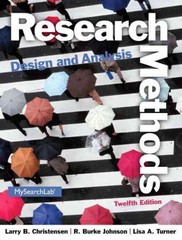Question
NAME: _________________________________________________ GCC- Macroeconomics Professor Wood Pretend you have $2,000 that you want to save. You can either choose to save it in the stock
NAME: _________________________________________________
GCC- Macroeconomics
Professor Wood
Pretend you have $2,000 that you want to save. You can either choose to save it in the stock market, with hopes that the share value will be higher in the future, or you can save it at financial institution.
Choose two companies to purchase stock shares from on November 1, 2020. Then determine what those shares are worth on November 1, 2021. You may divide the $2,000 among these two companies in any way you choose. Any extra money will be available on November 1, 2021 with no interest accumulation.
| STOCK PURCHASED (NAME OF STOCK) | QUANTITY OF SHARES PURCHASED | VALUE OF ONE SHARE ON 11/1/2020 | VALUE OF ONESHARE ON 11/1/2021 |
| Total STOCK VALUE: | Total STOCK VALUE: | ||
| Total STOCK VALUE: | Total STOCK VALUE: | ||
| AMOUNT REMAINING AFTER PURCHASING STOCK: | |||
| TOTAL VALUE OF SHARES + AMOUNT REMAINING: | 11/1/2020: | 11/1/2021: |
Did you see a return on investment from purchasing these stock shares?
Now, suppose you took the $2,000 and placed it in a certificate deposit account at a financial institution. The account generates 0.50% per year in interest. How much money would be in the account after one year, assuming a one year term?
Did you make more in the stock market or in the certificate deposit account?
Which option is more risky, the stock market or the certificate deposit? Explain why.
Step by Step Solution
There are 3 Steps involved in it
Step: 1

Get Instant Access to Expert-Tailored Solutions
See step-by-step solutions with expert insights and AI powered tools for academic success
Step: 2

Step: 3

Ace Your Homework with AI
Get the answers you need in no time with our AI-driven, step-by-step assistance
Get Started


